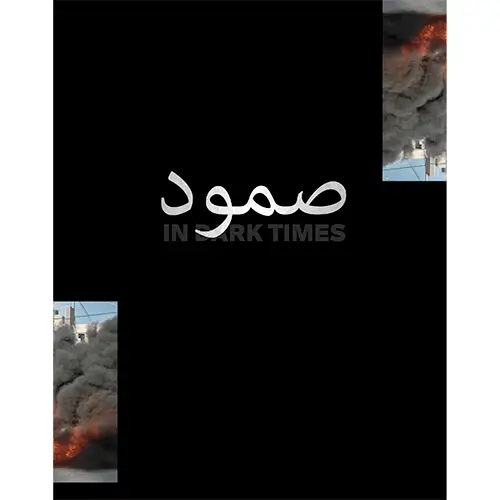Soumoud In Dark Times is a new photobook by
Rehab Nazzal. Featuring 41 color photographs taken between October 2023 and November 2024, the book presents a diaristic record of everyday life across the West Bank during a year of intensified military and settler violence.
Nazzal is a Palestinian visual artist and educator who lives between the Occupied West Bank and Montreal. During her time in the West Bank, she traveled through cities, villages, and refugee camps, documenting a period of ongoing struggle and resistance.
While global attention fixated on Gaza, Israel expanded its military campaign and land expropriation across the West Bank. Military raids became frequent. Drone assassinations, home demolitions, infrastructure destruction and mass arrests transformed daily life. In one year, over 11,000 Palestinians were detained and more than 800 killed, including over 100 children. The title of the book refers to soumoud — Arabic for ‘steadfastness’ — invoking both survival and refusal in the face of violence.
“Traversing cities, villages, and refugee camps, the images reveal the overt and covert violence inflicted on Palestinian lives, land, and environments”
—Rehab Nazzal
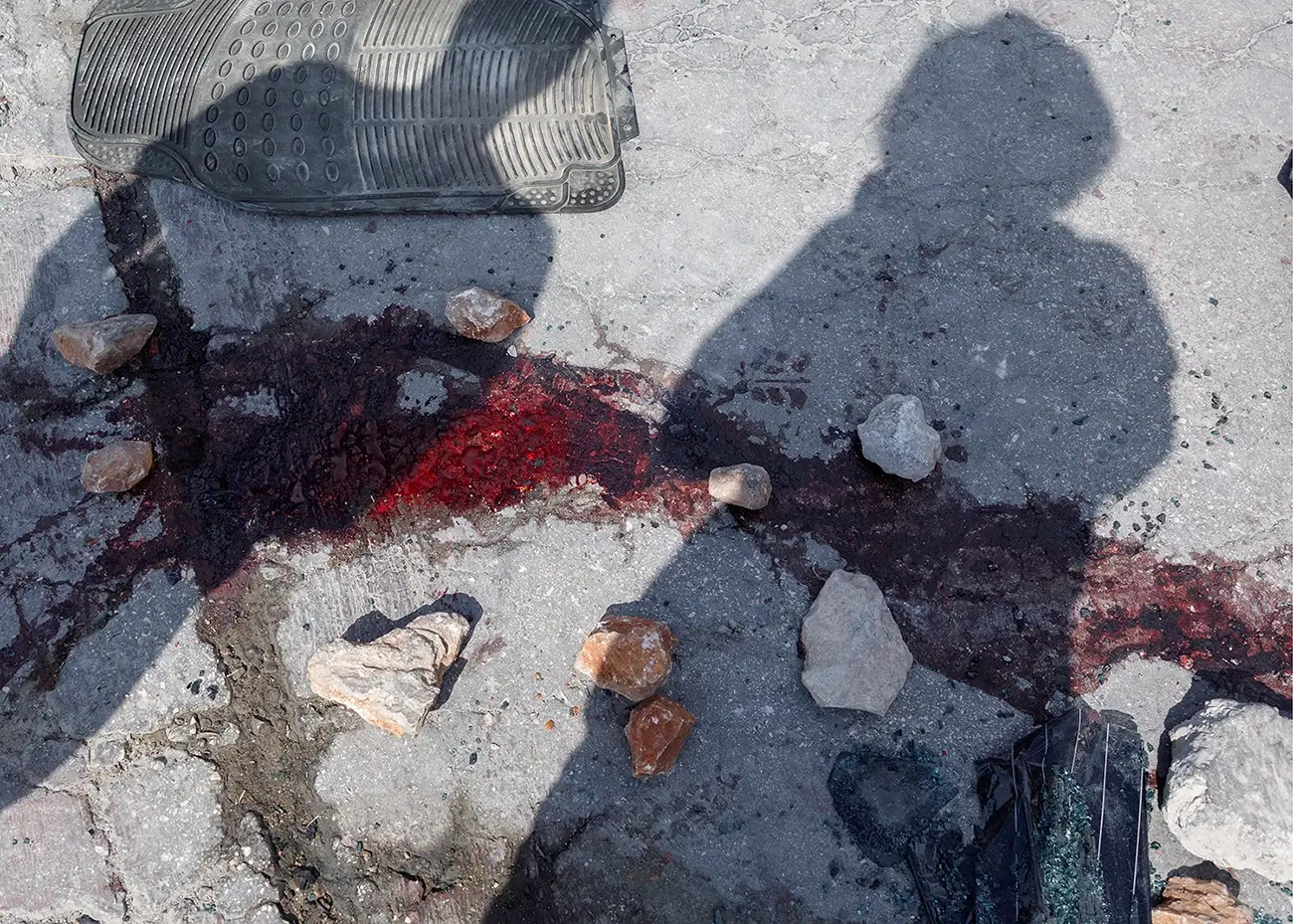
The Site of an Israeli Airstrike that Killed Five Palestinians in Tubas, Northwest West Bank, Sept, 2024 © Rehab Nazzal
Nazzal’s work positions documentary photography as a political act. Her images bear witness to what unfolds beyond the frame of mainstream representation. A bulldozed street, a shattered kitchen ceiling, a row of destroyed vehicles, or a girl embracing a grave become testaments not only to loss but to the persistence of life under siege. By capturing the daily realities of Palestinians in the West Bank, Soumoud in Dark Times exposes the systemic character of colonial domination.
“Rehab Nazzal’s diaristic images of West Bank Palestinians form a still, bittersweet pendant to the kinetic and blistering violence captured in Gaza”
—Roula Seikaly
An essay by Roula Seikaly situates the photographs within a broader conversation about photography and atrocity. She writes:
“Soumoud Amidst Darkness stirs questions that have long framed photographic discourse: can photographs capture the full horror of atrocity? How does text shape our perception of these images and what language is used to describe atrocity?”
These questions emerge through photographs of funerals, sites of drone attacks, military checkpoints, and the remnants of daily life — shops, alleyways, olive trees, gatherings — each under threat of destruction. From cracked watermelons rotting in the sun after a raid in Tulkarem, to a narrow alley in the Jenin Refugee Camp that remains standing after an attack, the images move between the enduring and the erased.
“<…> the photographs reflect kinship, solidarity, and ﺻﻤﻮد (soumoud), resilience.”
—Roula Seikaly
Soumoud in Dark Times invites viewers to confront what is seen, what is obscured, and what systemically is denied. “Palestinians in Gaza, the Occupied West Bank, and throughout the global diaspora know that they are living through or are witnessing genocide—and domocide, the intentional and widespread destruction of housing,” Seikaly writes.
Through soumoud, the book asserts a collective memory and resistance, in the absence of justice and under the shadow of continued displacement.
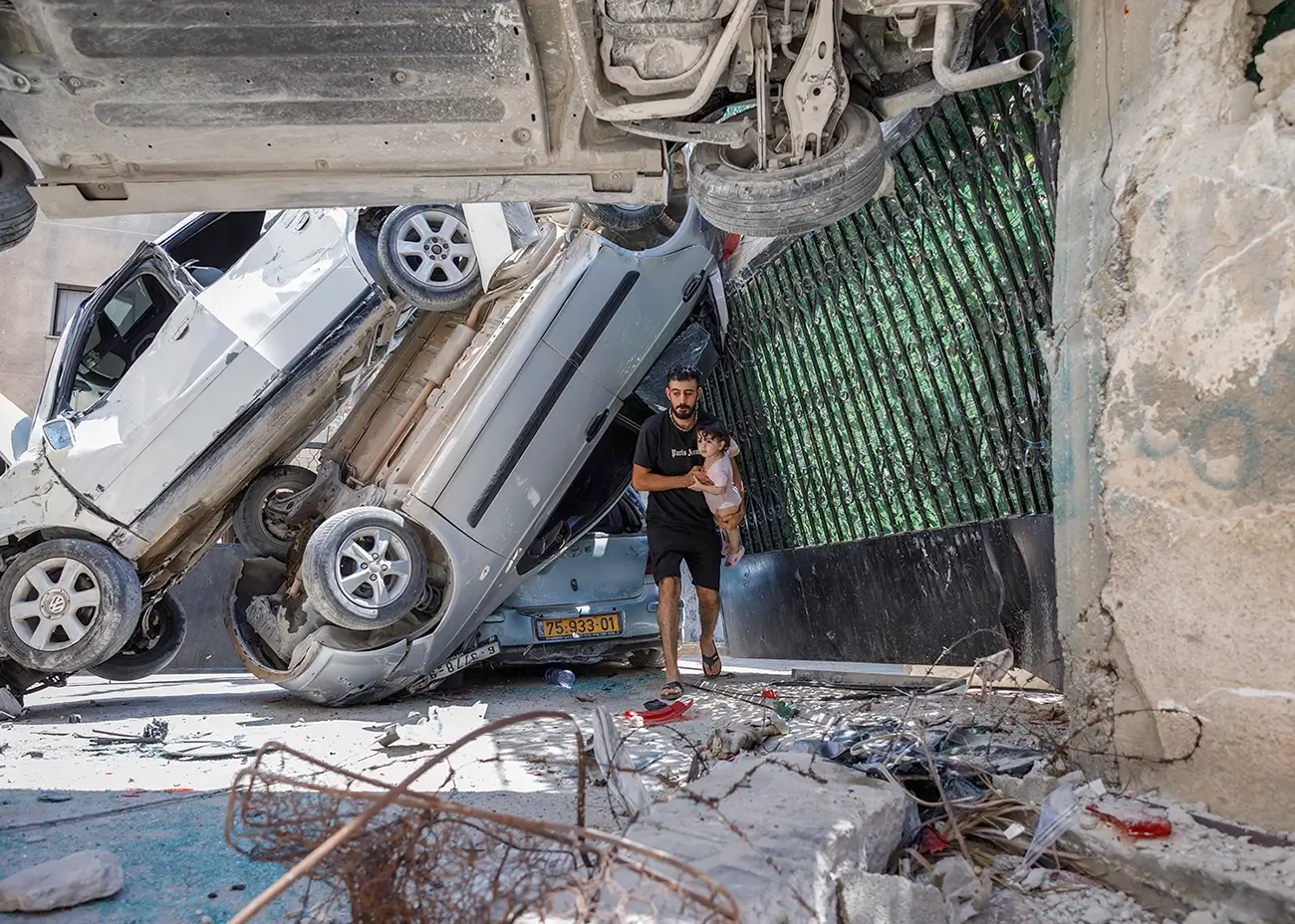
Palestinian Vehicles and Properties Destroyed by the IOF Bulldozers During a Raid in the Eastern Neighbourhood of Jenin, August 2024 © Rehab Nazzal
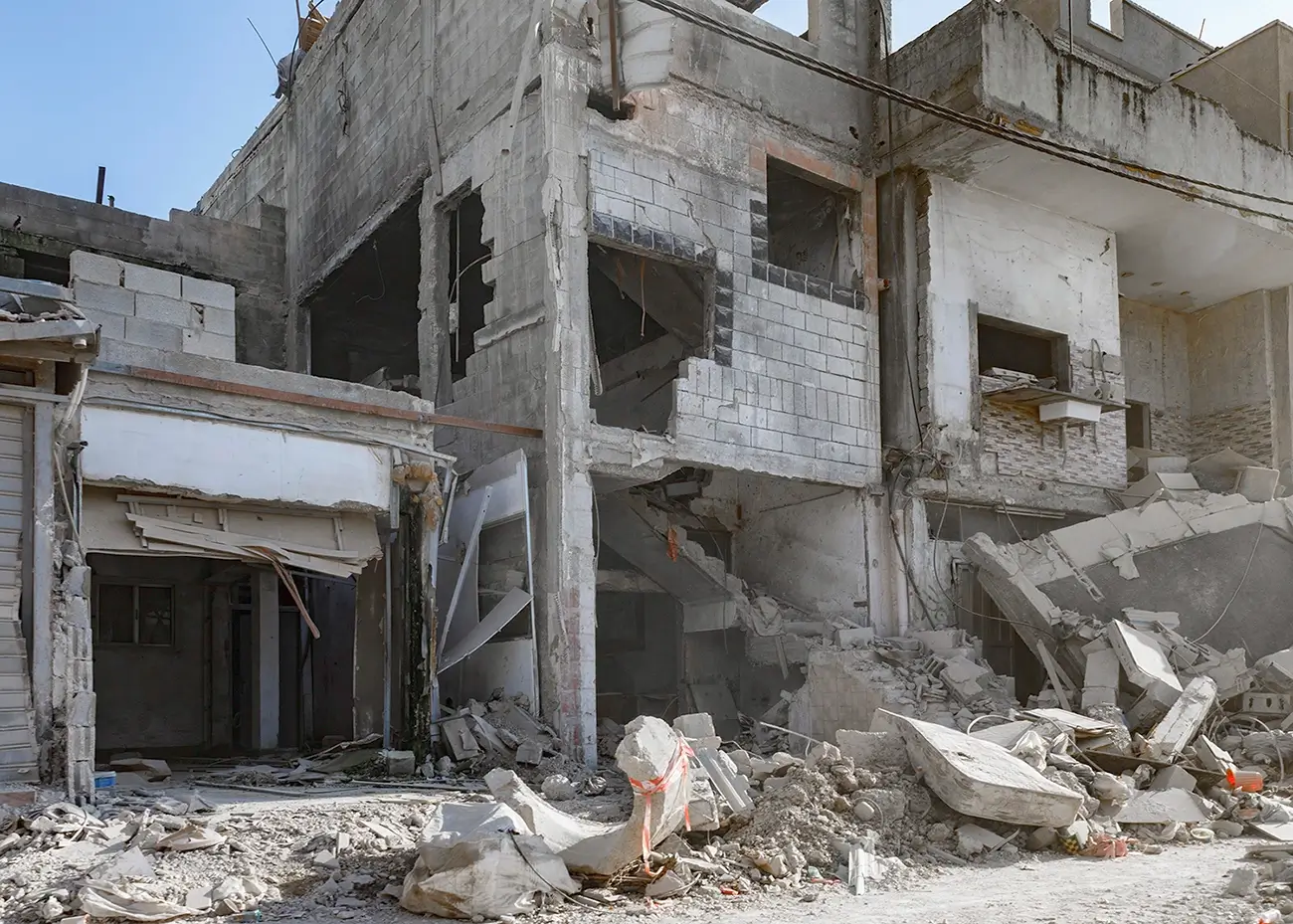
Nur Shams Refugee Camp in Tulkarm, September 2024 © Rehab Nazzal
Dr. Nazzal was an assistant professor at Dar Al-Kalima University in Bethlehem and has taught at Simon Fraser University, Western University and Ottawa School of Art. She is the recipient of multiple awards, including Concordia University Horizon Postdoctoral Fellowship in Studio Art; Prix Iris for Best Short Documentary at the 26th Quebec Cinema Awards, Award for best Short Film at the 68th BFI London Film Festival, Edmund and Isobel Ryan Visual Arts Award in Photography from the University of Ottawa among others.
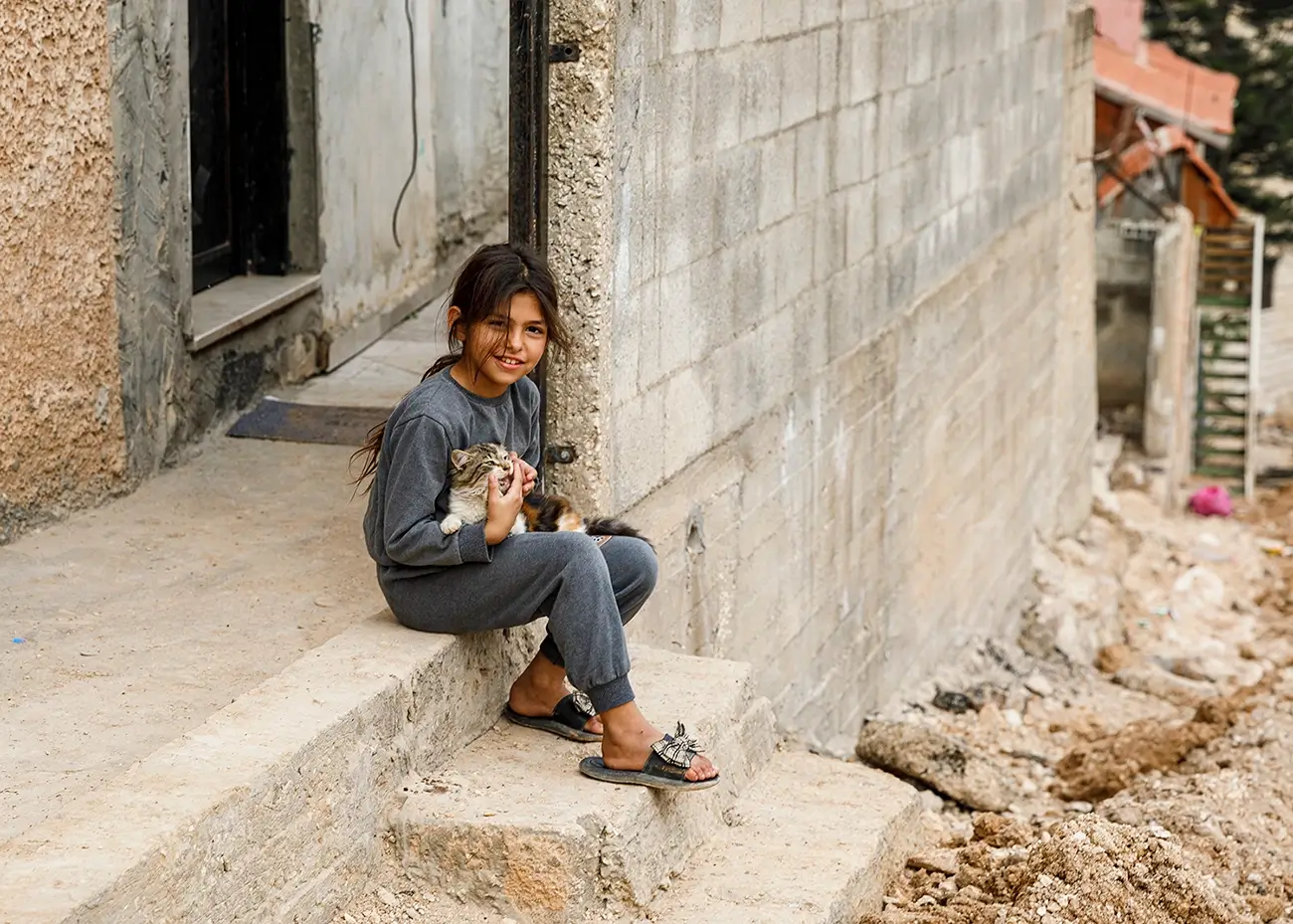
Comforting a cat following an IOF Raid, Jenin, December 2023 © Rehab Nazzal
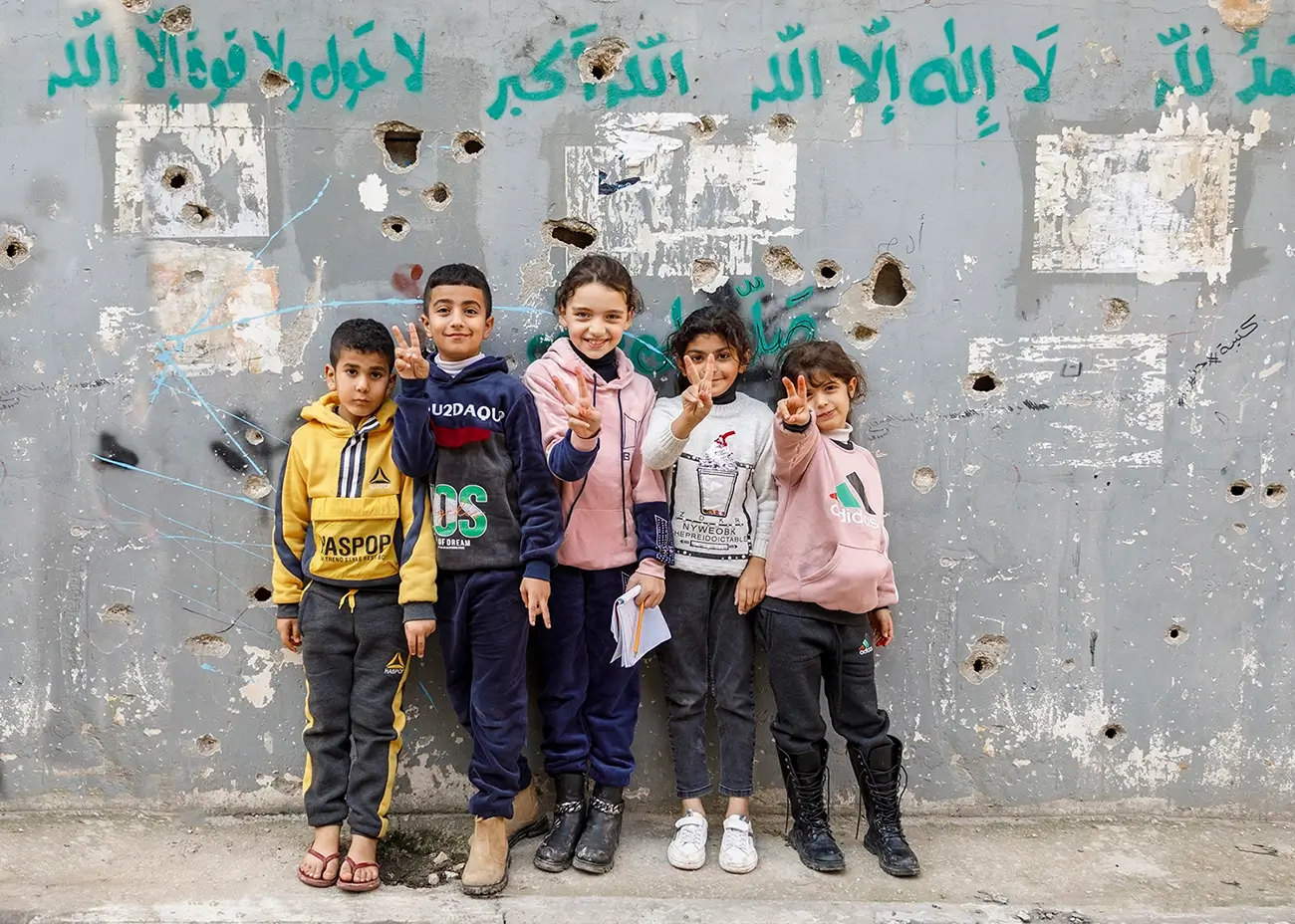
Children of Jenin Refugee Camp, December 2023 © Rehab Nazzal
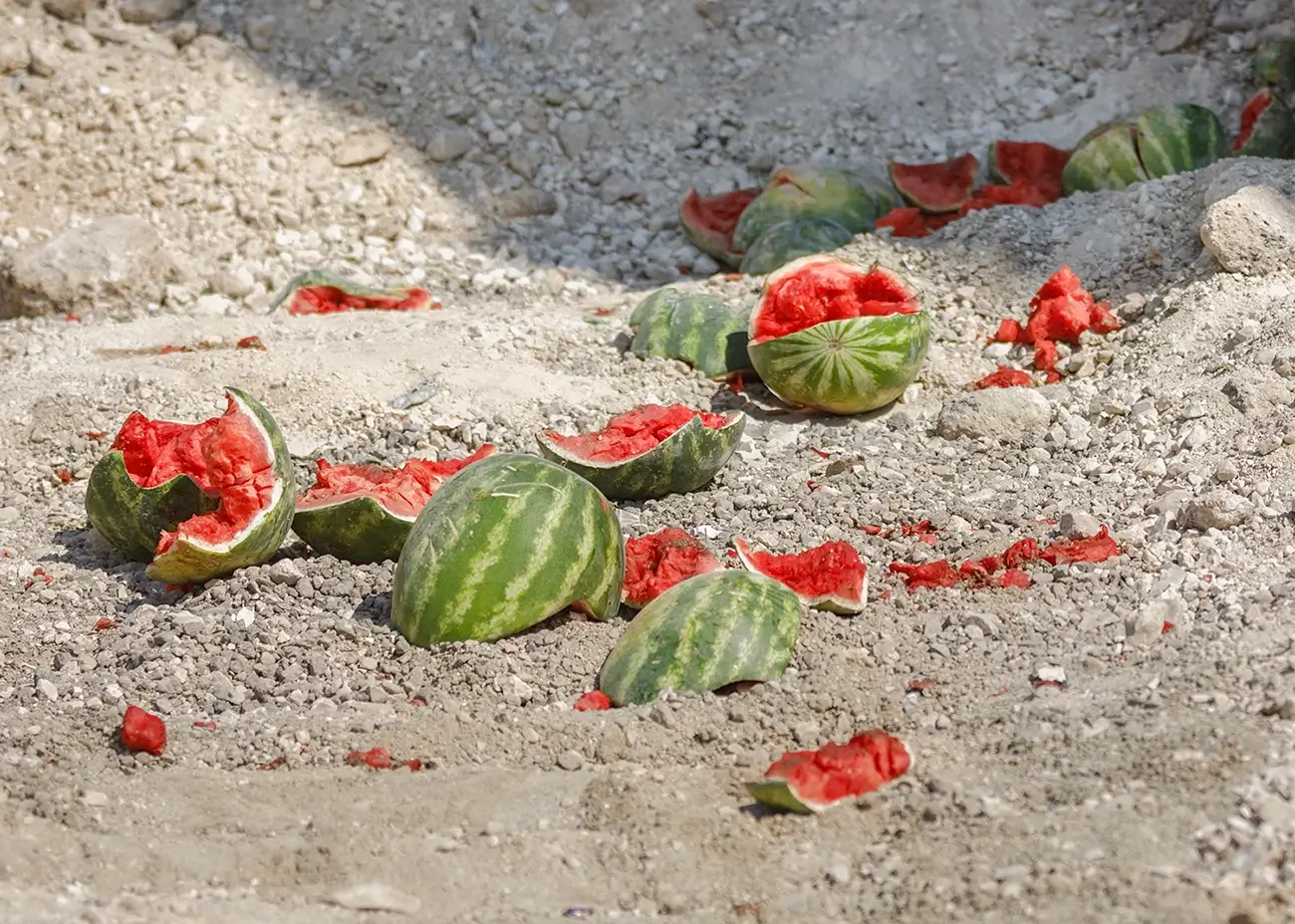
Watermelons Destroyed by the IOF During a Military Raid on Tulkarem, August 2024 © Rehab Nazzal
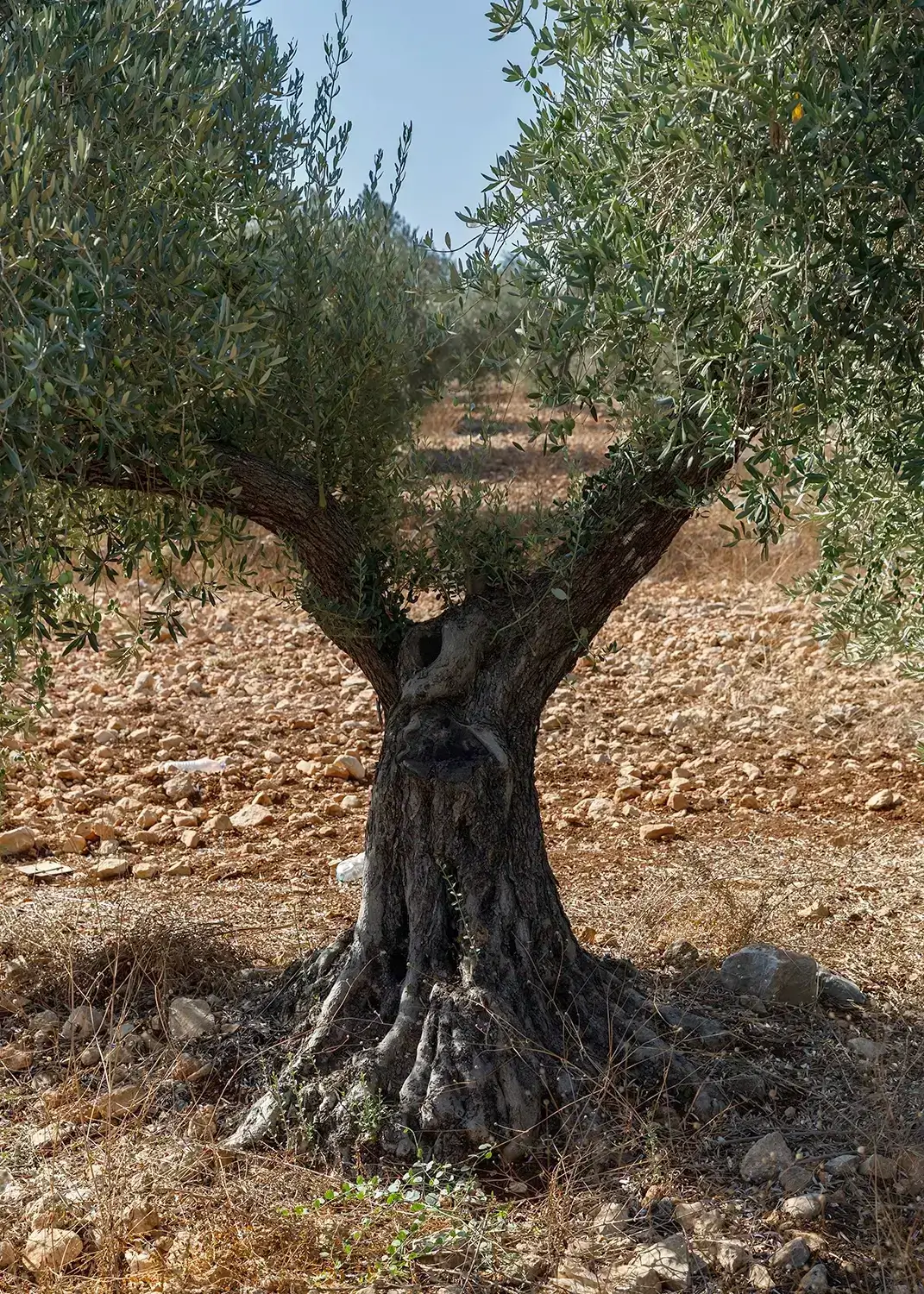
Olive Groves of Jenin, June 2024 © Rehab Nazzal
